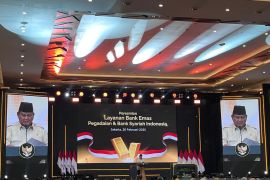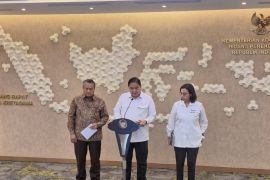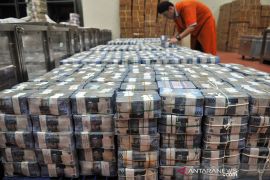The increase was boosted by the issuance of global bonds debt securities as well as oil and gas tax, which exceeded the amount required to settle the governments foreign debt and the Banks due foreign exchange securities, said one of the Banks officials in Jakarta, Monday.
"The position of the foreign exchange reserves as per December 2016 can actually fund import activities for more than 8 months or for over 8 months of import and governments foreign debt settlement. It can also maintain a position above the international adequacy standards of about three months import," said the Banks Executive Director of Communication Department Tirta Segara in a written statement.
The central bank has previously expressed its confidence in Rupiahs stable movement through out December 2016 and that it will boost the amount of foreign exchange reserves as the value of monetary operations using foreign currencies holds a lower potential compared to November 2016.
According to the banks referential currency (JISDOR BI), rupiahs movement in December 2016 is recorded at around 13,300 to 13,500 per US dollar.
"The currency itself is steady in December 2016 so there is a significantly smaller need for stabilisation measures in December 2016 compared to November, following the US presidential elections," said Deputy of Bank of Indonesia Perry Warjiyo on Friday, Jan 6.
Aside from the rather stable currency in December 2016, Perry believed that the increase in foreign exchange reserves is due to the continuation of surplus in the balance of trade up until the end of 2016.
The bank is optimistic in the reserves ability to support the external sector resilience as well as maintaining Indonesias future economic growth. (*)
Editor: Heru Purwanto
Copyright © ANTARA 2017











